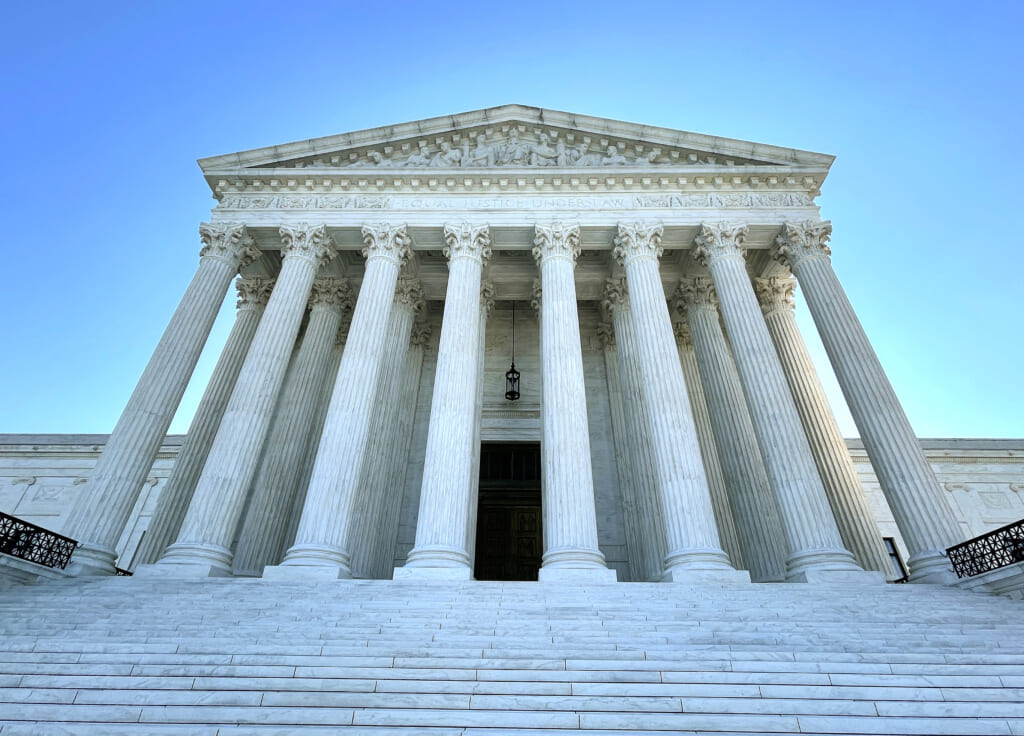Supreme Court takes up Texas law banning most abortions
The justices are hearing arguments in two cases over whether abortion providers or the Justice Department can mount federal court challenges to the law
The Supreme Court is taking up challenges to a Texas law that has virtually ended abortion in the nation’s second-largest state after six weeks of pregnancy, with at least one conservative justice who let the law take effect raising questions about the law’s novel structure.
The justices are hearing arguments Monday in two cases over whether abortion providers or the Justice Department can mount federal court challenges to the law, which has an unusual enforcement scheme its defenders argue shields it from federal court review.
Justice Brett Kavanaugh, who previously allowed the law to take effect in a decision that split the court 5-4, suggested that the unusual enforcement scheme could be problematic.
“There’s a loophole that’s been exploited here, or used here,” he said, explaining that the question for the court is whether to “close that loophole.” Kavanaugh suggested that the “principle” and “whole sweep” of a 1908 Supreme Court case would “suggest extending the principle here, arguably” and closing the loophole.

In neither case is the right to an abortion directly at issue, but the motivation for lawsuits filed by abortion providers and the Justice Department is that the Texas law conflicts with landmark Supreme Court rulings that prevent a state from banning abortion early in pregnancy.
The justices will hear a separate challenge to the decisions in Roe v. Wade and Planned Parenthood v. Casey in a case over Mississippi’s ban on abortion after 15 weeks. Those arguments are set for Dec. 1.
The Texas law has been in effect since September, except for a 48-hour period in early October when it was blocked by a lower court.
The high court jumped into the Texas cases less than two weeks ago, moving at extraordinary speed, but only after rejecting a plea to block the law by a 5-4 vote in early September.
Five conservative justices, including three who were appointed by President Donald Trump, were in the majority. Chief Justice John Roberts joined the court’s three liberal justices in dissent.
The court offered no explanation for its decision to hear the cases so quickly.
The Texas ban, signed into law by Gov. Greg Abbott in May, prohibits abortion after cardiac activity is detected in a fetus, usually around six weeks and before some women know they are pregnant.

The law makes exceptions for medical emergencies but not for rape or incest.
At least 12 other states have enacted bans early in pregnancy, but all have been blocked from going into effect.
But rather than have state officials enforce it, the Texas law deputizes private citizens to sue anyone who performs or aids and abets an abortion. If they’re successful, they are entitled to at least $10,000. Women who obtain abortions can’t be sued under the law.
During arguments Monday, Roberts at one point asked whether the law could be challenged if Texas had made the entitlement $1 million. Texas’ lawyer told him no.
The structure of the law threatens abortion providers with huge financial penalties if they violate it. Clinics throughout the state have stopped performing abortions once cardiac activity is found.
The result, both the providers and the Biden administration said, is that women who are financially able have traveled to other states and those without the means must either continue their pregnancies against their will or find other, potentially dangerous ways to end them.
The state and Jonathan Mitchell, an architect of the law, say in their briefs that the providers and the Justice Department lack the right to go into federal court and can’t sue state judges and clerks who are not responsible for enforcing the abortion ban. They also contend that there is no effective way of blocking the law, in part because federal courts can’t force state judges to abstain from hearing the lawsuits the law authorizes.
Have you subscribed to theGrio’s new podcast “Dear Culture”? Download our newest episodes now!
TheGrio is now on Apple TV, Amazon Fire, and Roku. Download theGrio today!
The post Supreme Court takes up Texas law banning most abortions appeared first on TheGrio.
from TheGrio https://ift.tt/3bwfyH1
No comments: